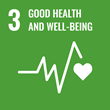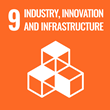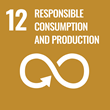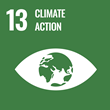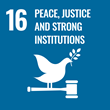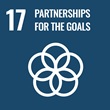
Project information
FOOD, HEALTH AND ENVIRONMENT RESEARCH INFRASTRUCTURES TO TACKLE EMERGING PRIORITIES
(FHERITALE)
- Project Identification
- 101131588
- Project Period
- 1/2024 - 12/2026
- Investor / Pogramme / Project type
-
European Union
- Horizon Europe
- Research Infrastructures
- MU Faculty or unit
- Faculty of Science
- Cooperating Organization
-
Universiteit Utrecht
CIRMMP Consorzio Interuniversitario
- Responsible person Antonio Rosato
Instruct ERIC
Analysis and experimentation on ecosystems - ANAEE
Sciensano
Institutul National de Cercetare-Dezvoltare pentru Bioresurse Alimentare
Agenzia nazionale per le nuove tecnologie, l'energia e lo sviluppo economico sostenibile - ENEA
This proposal aims to address systematically the provision and development of services available at European Research Infrastructures that the scientific community can exploit to investigate the effects that artificial materials (including plastics, micro-, nano- , and biotechnological materials) have on health and environment. Such effects may take place because of the intended use of the material (e.g. food packaging) or at the end of it cycle of use, e.g. due to plastic wear. These services, that are relevant to several areas of high societal and economic impact, are expected to span several scales and disciplines, encompassing high-quality metrology, structural biology, microbiology, and ecotoxicology.
The main output of this proposal will be a thorough overview of extant service provision by Europen RIs with respect to the state-of-the-art of scientific research in the aforementioned domain. FHERITALE will identify common strategies for the coordination and optimization of services at different RIs towards the implementation of streamlined research pipelines for the broad scientific communities. In parallel it will provide hints on service and technology gaps hampering high-impact research, thus preventing timely and through assessment of the repercussions of new materials on health and environment, which would constitute high-priority areas for future development. FHERITALE would design a coordination framework for the RIs to tackle these endeavors.
The technological focus of this application includes emerging areas of research for which international interest is growing at a fast pace. The interdisciplinary nature of the cluster of identified technologies will connect Health, Environment and Food research. This will be the first example, in the H&F domain, of a practical application of the “One Health” approach. This coordination effort will also serve as a fertile ground for further interdisciplinary research among the RIs from the H&F and other domains.
Sustainable Development Goals
Masaryk University is committed to the UN Sustainable Development Goals, which aim to improve the conditions and quality of life on our planet by 2030.


